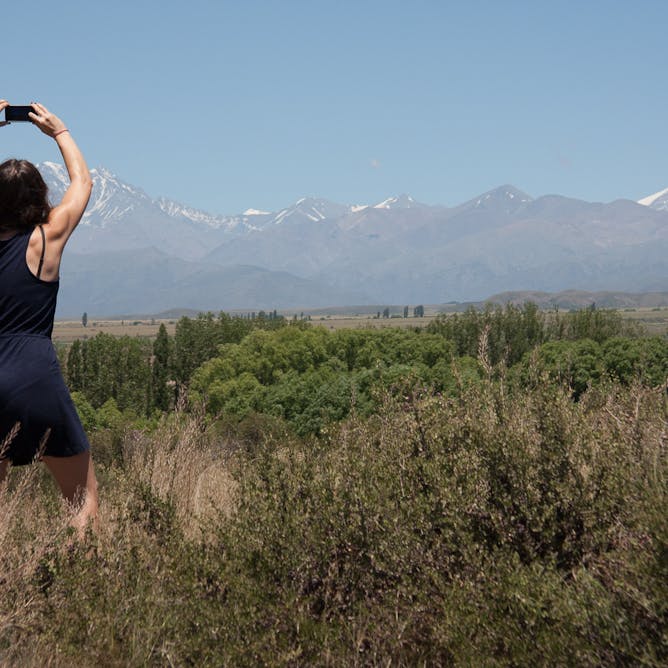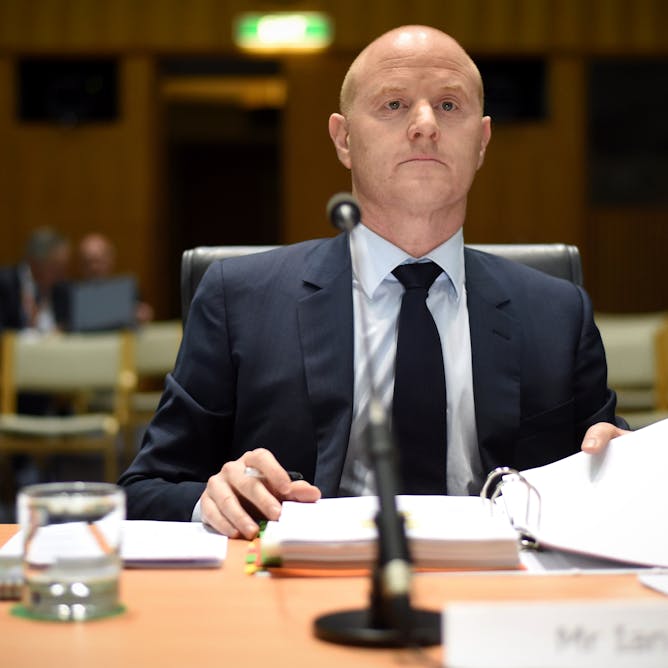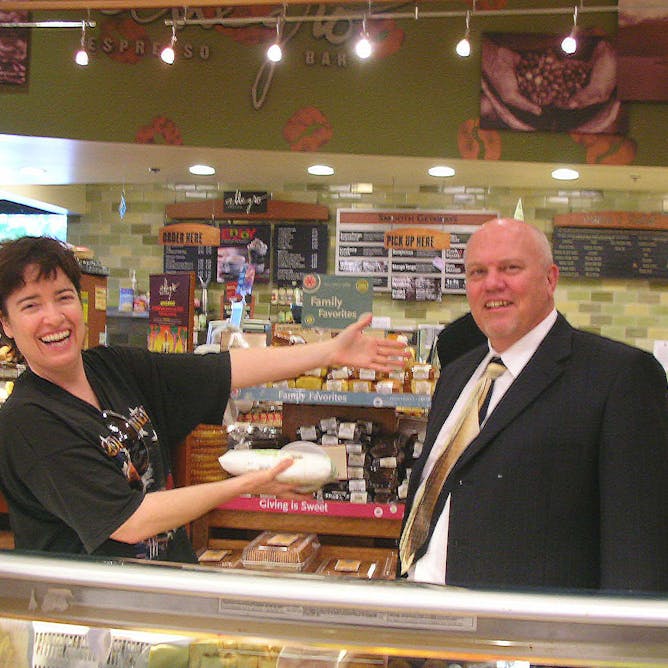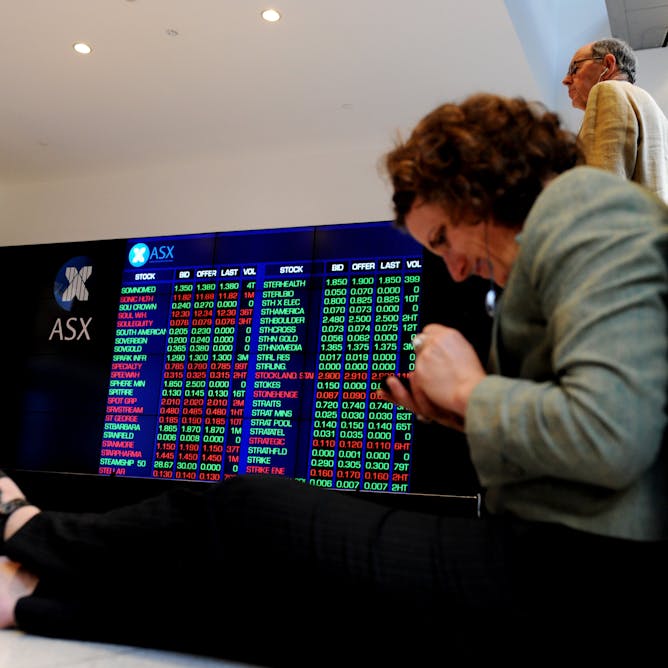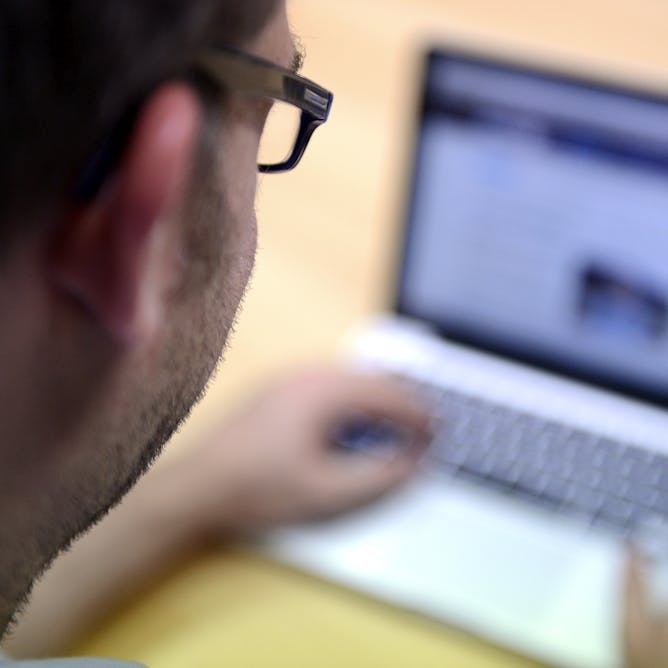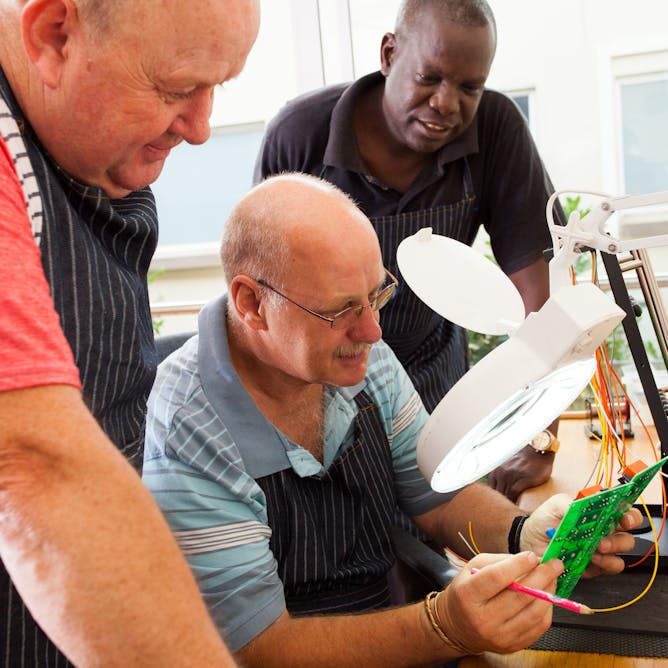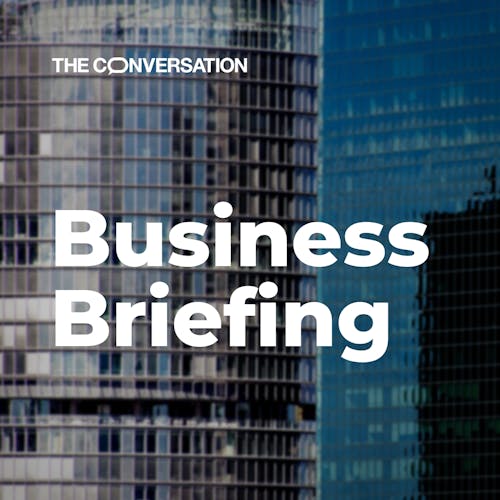
Latest Episodes
What happened to the price of Bitcoin? The truth behind big bubbles and crashes
When Katherine Hunt's dad asked her whether or not he should invest in Bitcoin, alarm bells rang, first she thought "he's a musician". Hunt is a lecturer in accounting at the Griffith Business School, and as someone who knows the five stages of a bubble and crash, she was worried when it seemed everyone was thinking they needed to "get in on" Bitcoin. "The stock market is a manifestation of the psychology…
3 Hosts: John Crosby, Katherine Hunt, and Simon Ville
Business Briefing: questioning the economics of prison
There are more than 41,000 daily full-time prisoners in Australia, according to the latest ABS data. Many of them are in private prisons - almost 20% of the prison population according to a 2014 Productivity Commission report. But we don't really know whether private prisons are more cost effective or produce better results. Private prison contracts are often "commercial in confidence", and it's hard…
4 Hosts: Joanne Wodak, Kai Riemer, Katherine McFarlane and 1 other
Business Briefing: the 'get rich quick scheme' influencing what you buy
It sounds like a get rich quick scheme. Amass huge numbers of followers on a social media platform like Instagram and you can get paid like a celebrity to mention or feature products in your posts. But this industry of "online influencers" was worth US$500 million in 2015, and is expected to grow to be worth US$5 billion by 2020, according to Sandra Peter from the University of Sydney. There's a well…
4 Hosts: Crystal Abidin, David Glance, Kai Riemer and 1 other
Business Briefing: are our standards dropping in the workplace?
Our workplaces are becoming less formal as the decor resembles what we have at home, companies relax dress codes, and technology makes it possible to work from anywhere. But the old formality had some advantages, says Libby Sander from Bond University. For example, closed doors used to signal that you didn't want to be disturbed, and suits are an easy way to look professional. As Sander points out…
5 Hosts: Kai Riemer, Libby (Elizabeth) Sander, Nicole Gillespie and 2 others
Business Briefing: following the money in cricket
Rather than just admiring a good hit or delivery, there's another way to analyse what's happening on a cricket pitch. Cricket players are actually business people, in the sense that they're weighing up how many resources they have, whether it's wickets in hand or overs remaining, says Steven Stern, a professor of data science at Bond University. Stern is responsible for the Duckworth-Lewis-Stern method…
5 Hosts: David Bond, Kai Riemer, Sandra Peter and 2 others
The science of business decision making: giving out perks doesn't necessarily lead to results
Research shows that when it comes to cognitive tasks, like decision making, paying people more can lead to worse outcomes. If we want to get the best out of our executives, the ideal amount to pay them is "enough to take money off the table". Anything extra might excite them, but not in a way that makes them better executives. Put simply, giving a CEO one, two or three million dollars might motivate…
2 Hosts: Prabhu Sivabalan and Stephen Woodcock
Business Briefing: how the attitudes of the next generation are changing the property market
Generations X and Y are becoming just as, or even more aggressive, than the baby boomers as investors. An example of this are the "rentvestors", who still don't live in their own home, but have an investment property. There's been a change in culture over the generations when it comes to the property market, says researcher Ilan Wiesel from the University of Melbourne. "It's the shift from housing…
3 Hosts: Ilan Wiesel, Kath Hulse, and Robert Crawford
Business Briefing: when robots and customers meet
When you call up a business, you might get an automated customer service giving you options and helping you to do whatever it is you need to. This is a digital robot. It's common to see digital robots in these types of roles because the technology is getting cheaper and better, says Mary-Anne Williams, founder and director at UTS' Innovation and Enterprise Research Lab. Williams researches how humans…
1 Host: Mary-Anne Williams
Business Briefing: what super is doing to banking and finance
The total of superannuation assets in Australia is a staggering A$2 trillion and contributions to this are rising. But despite this significant influence, a new study shows the effects of superannuation on banking and finance mostly balance out. A researcher who was presenting the study, Robert Waschik from the Centre of Policy Studies in Melbourne, says the study found super funds hold more offshore…
1 Host: Robert Waschik
Business Briefing: Former chief World Bank economist on inequality and doing away with big money
Doing away with big currency notes is a movement that is picking up all over the world, says Kaushik Basu, a professor of economics at Cornell University. While it may be a good idea in theory for tackling tax evasion and the black market in Australia, he says policymakers have to be cautious in implementing it. Basu, a former economic adviser to the Indian government and chief economist at the World…
1 Host: Kaushik Basu
Business Briefing: fixing culture in banking and finance
Australian banks have been under intense scrutiny this year after various scandals called into question the culture of the industry. But it seems there's no easy answer to improving culture. Professor Paul Kofman from Melbourne University was a panellist at an event discussing this exact issue. He says the heart of the problem is the lack of evidence for what types of cultural interventions translate…
1 Host: Paul Kofman
Business Briefing: breaking down the 457 visa myths
Peter McDonald, a professor of demography at the University of Melbourne, says a 457 visa worker is more likely to take the job of a young academic than that of a blue collar worker. Labor and the Coalition government are suggesting changes to the 457 visa workers scheme to ensure these workers aren't taking jobs that would otherwise be filled by Australians. However Labor's plan is misguided because…
1 Host: Peter McDonald
Business Briefing: what Australia can learn from a Polish economist
Andrzej Rzonca, a Professor of Economics at the Warsaw School of Economics and member of the Monetary Policy Committee at Poland's central bank, is visiting Australia at the moment. He's here to learn more about our monetary policy woes but to share his views on Brexit and the ever growing tension between the United Kingdom and other members of the European Union. Despite the differences between Poland…
1 Host: Andrzej Rzonca
Business Briefing: being funny with customers
As part of a research team, Christine Mathies from the University of New South Wales Business School stood outside a suburban retailer (who had volunteered to be part of the study) and quizzed customers who came out on their experience and satisfaction. They knew one of the employees was a bit of a joker, and were trying to see whether humour made a difference to customers. It turns out humour can…
1 Host: Christine Mathies
Business Briefing: rate tracker mortgages
In the ongoing debate about the transparency of Australia's big banks, the idea of rate tracker mortgages has been gaining traction. This is a mortgage that is tied to the cash rate set by the central bank (in Australia, the Reserve Bank of Australia), with an additional fixed margin set by the lender (usually a bank). The rate follows the ups and downs of the cash rate, similar to what already occurs…
1 Host: Milind Sathye
Business Briefing: why the future is workless
When Tim Dunlop, from the Centre for Advancing Journalism at the University of Melbourne, started to research the future of work, his economist friends pointed to all the research showing there will still be jobs. A few years later and Dunlop isn't so sure. His book, "Why the Future is Workless", unpicks the research into everything from machines learning to do our jobs to the idea of governments paying…
1 Host: Tim Dunlop
Business Briefing: Trusting business to take care of your data
Former ACCC chief Graeme Samuel is calling on businesses to take a closer look at their data management practices in a bid to increase public trust in their ability to handle it. Samuel says if they don't take the lead on data use, companies risk more government regulation, with the potential for overreach. He is the new head of a not-for-profit industry body, Data Governance Australia, that wants…
1 Host: Graeme Samuel
Business Briefing: treat the cause not the symptoms of problems with private health insurance
Australia's private health insurance industry has come under scrutiny over what is covered by the products it sells, how it sells them and high premiums. This all means consumers are left questioning the value of buying health insurance, says Associate Professor Francesco Paolucci, head of the health policy program at Murdoch University. Paolucci argues all of this is a symptom of the way Australia's…
1 Host: Francesco Paolucci
Business Briefing: we're overusing and underestimating 'disruption'
"Disruption" and "disrupters" have become buzz words in the business community and are often used to describe any change or evolution in a sector. However businesses shouldn't dismiss it as a fad says the University of Sydney's Professor Kai Riemer, who has been studying disruption for the past five years. Disruption is actually a fundamental change in the way we view and use products and what we understand…
1 Host: Kai Riemer
Business Briefing: trusting an algorithm with investment decisions
Automated financial advice has been around for quite some time. Usually a bank or a broker will type your details into computer software and rely on algorithms to advise you, especially if you're a small time investor. However these days, more and more investors are digital natives, savvy when using online platforms and more trusting of computer generated financial advice, says Marco Navone from UTS…
1 Host: Marco Navone
Business Briefing: disrupted companies will need to think global to survive
Australian companies should better manage the expectations of shareholders who increasingly expect dividends and focus more on meeting the needs of global consumers, says UNSW Adjunct Professor Paul X. McCarthy. That's his advice for companies dealing with the disruption brought on by digital platforms. Aside from the price of iron ore affecting the big end of town in this year's results, the major…
1 Host: Paul X. McCarthy
Business Briefing: hack-proof, how business can stay ahead in cybersecurity
The first thing business gets wrong in understanding cybersecurity is assessing the value of the information it holds. Businesses need to know the information they are trying to protect. Is it information about the business that would be shared via marketing? Information that is commercial in confidence? Or does it have a high security risk, such as defence information, intellectual property for a…
1 Host: Craig A. Horne
Business Briefing: Simon McKeon on removing the retirement label
Former Treasurer Joe Hockey did not get a warm reception when he confirmed the retirement age would increase to 70 by 2035. But Monash University Chancellor Simon McKeon thinks its not such a bad thing. He argues if Australians are productive well into their later lives, why should they be stuck with a label of being incapable of working past a certain age? After all, older age is a meaningful part…
1 Host: Simon McKeon
Business Briefing: a better way to design an office
A lot of Australian building codes don't actually refer to the maximum number of people a building should fit. That's what researcher Agustin Chevez found when he started to delve into how a better office might look. As the type of work we do changes, it becomes less about the tasks you do and more about your reactions to and relations with those you work with, Chevez says. So you need to be able to…
1 Host: Agustin Chevez
Business Briefing: the big bucks of broadcasting the Olympics
Since the first telecast of the Olympics in 1936 from Berlin, television has been a major part of the games. The first time broadcasters paid for the rights to show the Olympics was in 1960 for US$1.2 million (about US$10 million today). Research shows media companies lose money on the broadcasting rights. But it also seems there is no limit to what these companies will pay for them, says Hunter Fujak…
1 Host: Hunter Fujak



